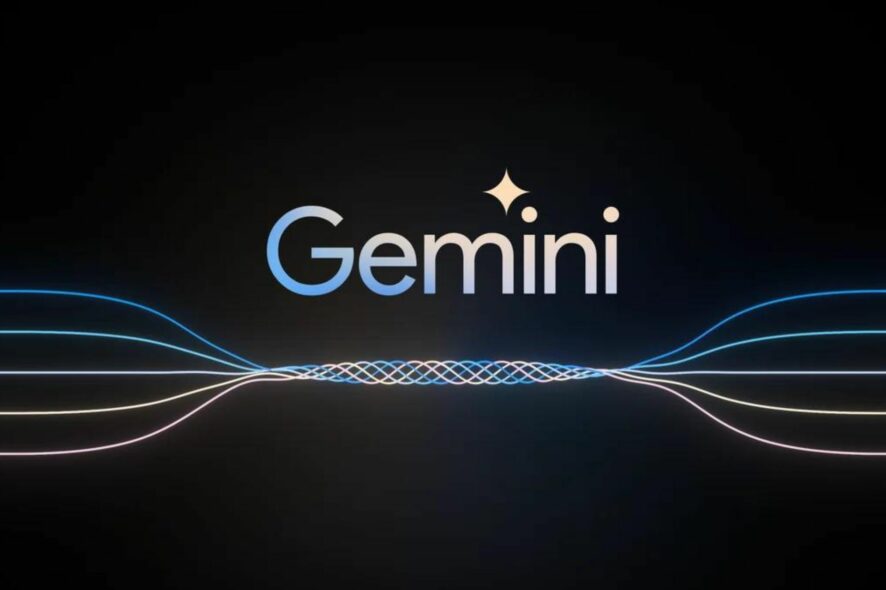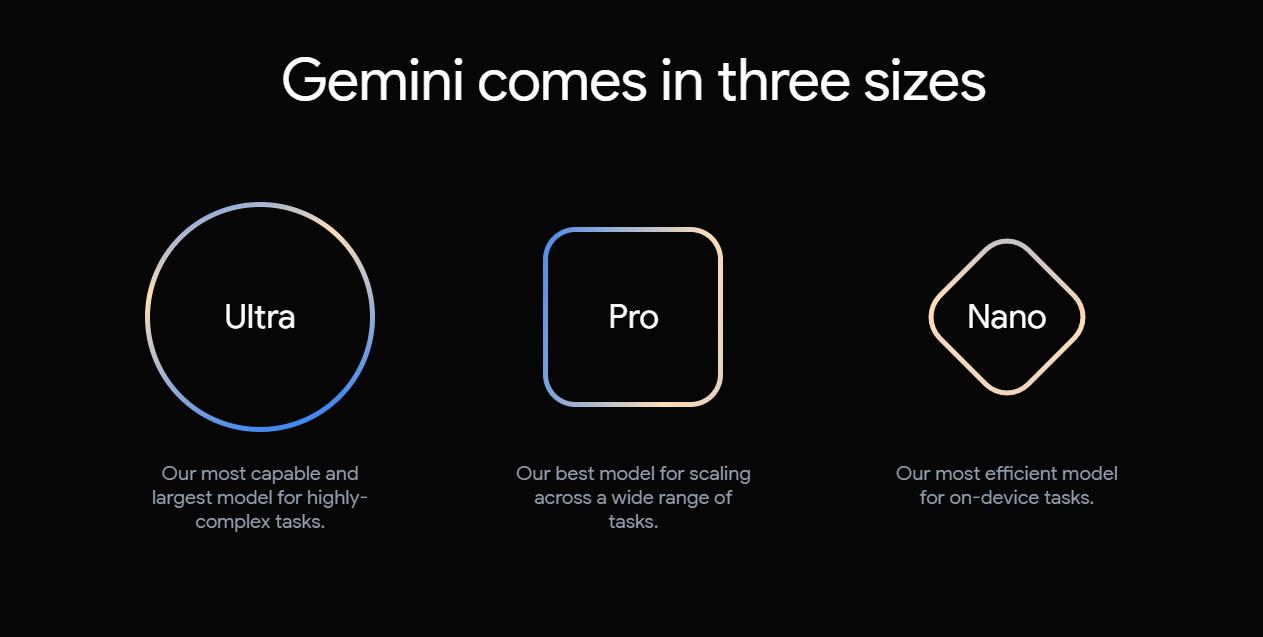Google's newest Gemini AI comes in 3 versions: Which one should you choose?
Gemini Ultra, Gemini Pro, and Gemini Nano are meant for different situations.
3 min. read
Published on
Read our disclosure page to find out how can you help Windows Report sustain the editorial team Read more

Google finally released Gemini AI to the world, officially joining OpenAI, Amazon, Meta, and Microsoft in the race for AI development, and competing for a place in people’s hearts and minds, pun intended.
The tech giant has been teasing Gemini for a while, and it was reportedly expected to be released by the end of 2023. Now, that it has been released, Google claims Gemini is better than GPT-4 on all tests, and outperforms human experts on MMLU (Massive Multitask Language Understanding), one of the most rigorous tests to understand the AI’s capacities and capabilities.
Gemini is built from the ground up for multimodality — reasoning seamlessly across text, images, video, audio, and code. Gemini is the first model to outperform human experts on MMLU (Massive Multitask Language Understanding), one of the most popular methods to test the knowledge and problem solving abilities of AI models.
Google
Similarly to the other AI models currently on the market, such as ChatGPT, Claude II, or Copilot (formerly known as Bing Chat), Gemini is proficient at rendering text, images, video content, audio files, and code. Plus, Google says its AI model comes in no less than 3 versions, Gemini Ultra, Gemini Pro, and Gemini Nano, and each one is suited for a different situation, of course.
Google’s Gemini AI: Which version should you choose?
Well, Google defines each Gemini version through its suitability. For example, Google says Gemini Ultra is their most capable and largest model for highly complex tasks. On the other hand, Gemini Pro is the best model for scaling across a wide range of tasks, and finally, Gemini Nano is the most efficient model for on-device tasks.
Based on this, we can underline the following situations:
- Gemini Ultra would be suitable for highly complex tasks such as server maintenance and management, demanding research work that requires processing a great deal of information, as well, as devising complex strategies for cybersecurities. So this model would be best placed in:
- Research laboratories of all kinds
- Cloud server farms
- Tech security companies
- Gemini Pro would be suitable for organization-wide situations. Think about Copilot for Microsoft 365, or Copilot for Azure. In these cases, Gemini Pro could be a great tool for a company to have, and it could be employed to complete a wide range of tasks, from finding specific data and compiling it to offering support for software developers. This model would be best placed it:
- Companies of all kinds (gaming industries, software development industries, etc.)
- Healthcare and administration (from hospitals to government institutions)
- Schools and academic settings
- Gemini Nano would be best suitable for a personal AI model, so it would be very similar to Bing Chat, the Meta AI bots, or even the recent GPTs. They would be integrated into mobile devices (which they already have been, in Google’s Pixel), such as phones, tablets, and laptops.
These three versions of the Gemini AI are tailored enough to provide answers and solutions to each one of these situations, and if you don’t know which one to choose, then you should be asking yourself what you need it for.
If you’re an entrepreneur, you can for the Ultra or Pro versions, depending on the scale of your company, and business.
If you have a personal business, such as content creation, freelance software development, or similar professions, the Nano version should be enough for you.
Do make sure to check out Google’s official blog posts on Gemini, as they could give a much more detailed of each version.









